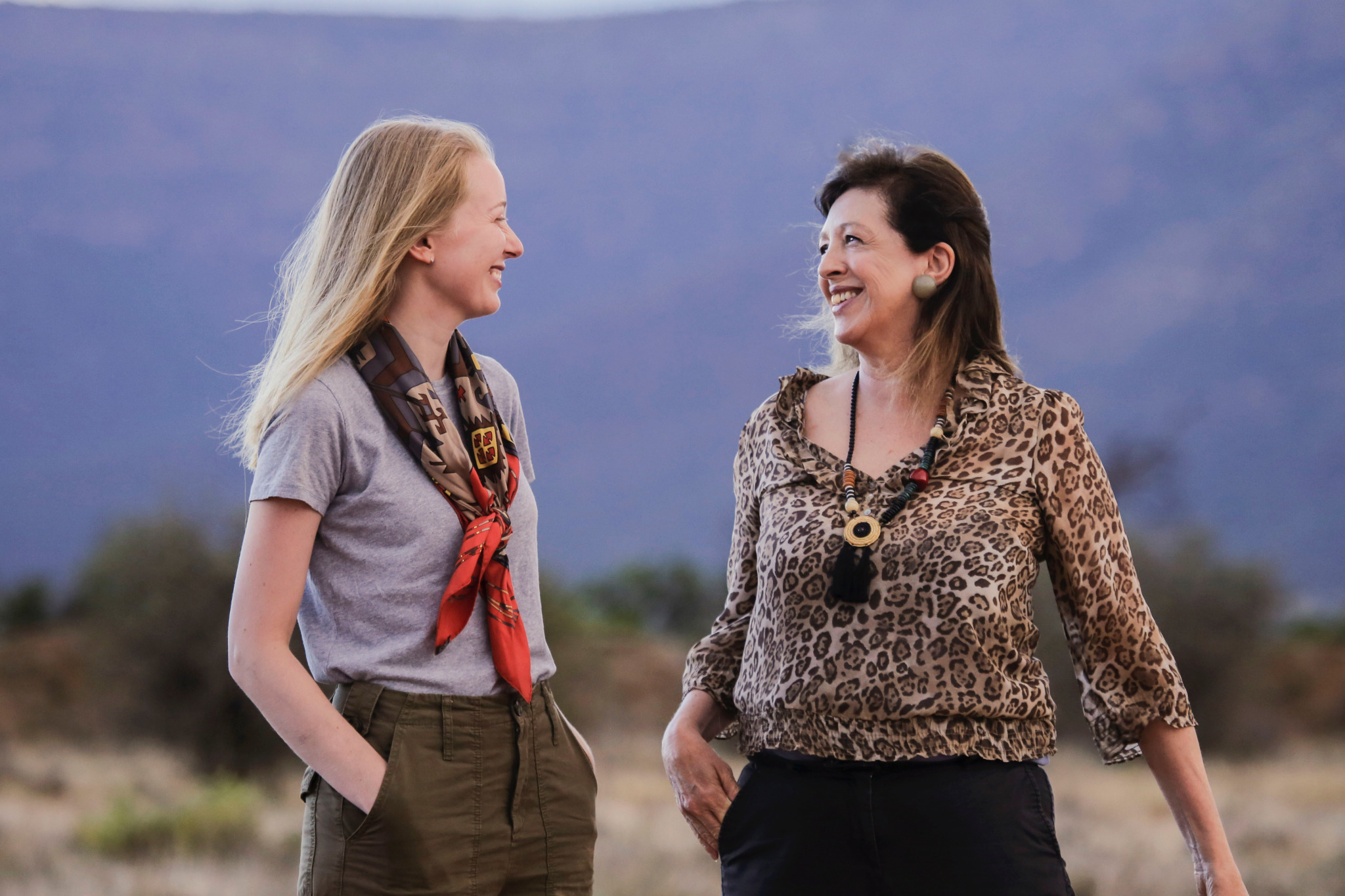
Isabelle and Sarah Tompkins, the mother-and-daughter team leading Samara Karoo Reserve explore the true meaning of sustainable travel.
Why do we travel? To satisfy our curiosity, to explore, to experience, to just be. And we’re not alone. Thanks in large part to society’s wanderlust, tourism and related industries are global big-hitters – contributing up to 10% of worldwide GDP. Those who travel report back on life-defining experiences that have shifted their world view, replenished their batteries, sparked conversations and given them renewed appreciation for their loved ones.
In short, travel is meaningful. Yet this is not the case only for those who experience it, but also – crucially – for the people and places that depend on it.
The COVID-19 pandemic threw this dependency into sharp relief, particularly in Africa. As borders closed in March 2020 and tourists scrambled to return home, entire nations held their breath. The tourist hotspot savannahs of East Africa, typically thronging with safari vehicles, emptied – entire safari lodges mothballed, staff sent on indefinite leave. In South Africa, conservationists warned that the absence of the “eyes and ears” of tourist vehicles in protected areas, combined with rising poverty in local communities, could lead to an increase in rhino poaching for their horns – worth thousands of dollars on the black market.
The extent to which many of the continent’s wild spaces depend on tourism for their continued protection soon became abundantly clear. A consciousness within the tourism industry seems to have arisen from that traumatic time – a sort of phoenix rising from the ashes. The question, when faced with the parallel crises of climate change, ecosystem degradation, societal inequality and more, is not whether to travel. It is how to travel. And specifically, how to travel better. The notions of “responsible”, “ethical” and even “regenerative” tourism have become the new buzzwords, replacing the erstwhile moniker “sustainable” as the mots du jour. But as tourism rebounds apace, what does this new form of travel really mean, and how can mindful travellers participate?
At its core, responsible tourism is tourism with impact. It is a call to arms to travel companies, hoteliers and other tourism stakeholders to move from “do no harm” to “create net good”. This positive impact can take many forms, from local job creation to environmental sustainability, inclusive guest experiences to carbon positivity. Fundamentally, it measures progress as a triple bottom line – the creation of financial, social and environmental wealth for all stakeholders. Contributing one in ten jobs worldwide pre-pandemic, and projected to reach those levels again in the coming years, the tourism industry clearly has both an opportunity and a responsibility to lead the way in creating models and systems that make purposedriven business the norm.
When our own journey at Samara Karoo Reserve started back in 1997, ‘responsible tourism’ and ‘regenerative travel’ were certainly not part of the lingua franca. Yet in many ways those very principles have permeated our story since the beginning. Acquiring 11 former livestock farms in South Africa’s magnificent Karoo region just over 25 years ago, we embarked on what has since become our life’s work – the rewilding of 67,000 acres of land in a semi-arid paradise of extraordinary beauty. The tale began, as most good tales do, around the campfire on safari in a different part of South Africa. It was there that Sarah and husband Mark met a Karoo local who happened to be a storyteller of note – as well as an estate agent with a farm for sale.
He recounted tales of historical antelope migrations numbering in their millions – more spectacular even than those of East Africa – roaming the vast landscape of plains and mountains. These migrations were no more, he said, as a result of generations of hunting and farming which had exterminated lions, elephants, cheetahs and buffalos. But there was a glimmer of hope – an opportunity to restore what once was by bringing back the animals, rehabilitating the ecosystem and creating incentives for its protection. And so, after consultation with various relevant experts, we became custodians of this precious land.
With no prior hospitality experience and a dose of naïve optimism, we started an ecotourism business built on the values of ‘making things better’. It just seemed like the right thing to do.
Over the following quarter of-a-decade we have refined our approach. With Isabelle, the second generation, officially joining the team after university, the task pivoted to formalising Samara’s sustainability commitment – ensuring credibility in the age of greenwashing. In 2020, Samara joined The Long Run, a global network of nature-based tourism businesses committed to achieving sustainability across the “4Cs”: Conservation, Community, Culture and Commerce. The following year, we became members of Regenerative Travel, a collection of hospitality offerings dedicated to the highest standards of social and environmental impact. Both accreditations are given to hotels that meet high sustainability standards, with ongoing training, site assessments and best-practice sharing.
In 2023, Samara is walking the talk with a wholesale renovation of our flagship Karoo Lodge – expanding accommodation capacity with a light ecological footprint that embraces its roots as a farm homestead. Our newest safari offering, launching in May, will be an explorer-style Trails Camp offering an off-grid safari experience focusing on reconnecting with Nature in elegant and sustainable simplicity.
When planning your next holiday, take a moment to reflect on the kind of impact you will have. After all, in the words of sustainability author Anna Lappé, “every time you spend money, you’re casting a vote for the kind of world you want.”
samara.co.za
